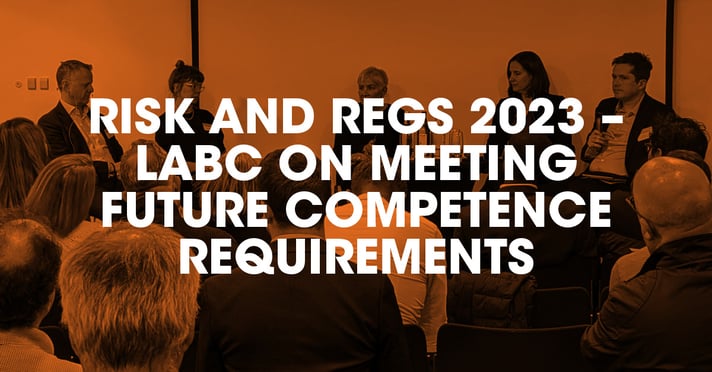New responsibilities, new people
The new obligations that LABC will address, as explained above, mean that local authorities need to increase the size of their teams.
“In the last 12 months LABC has been very fortunate, we are honoured, to have been trusted by the Department of Levelling Up, Housing and Communities to help prepare public service building control for the new regime,” said Lorna Stimpson.
This funding has driven the recruitment of 105 new building control professionals. “We had an enormous amount of interest in the role,” said Lorna. “1,000 applied, 250 interviewed, and 105 have made it.
"7% of successful candidates were previously members of the armed forces, 66% are embarking on their second careers and 29% of the new LABC trainees are female - far higher than the overall construction industry average, estimated at between 10-15% of the workforce."
New certifications, new qualifications
While LABC has benefited from new funding, they have made funding commitments of their own in the building control world.
In 2021, LABC established a community interest company known as the Building Safety Competence Foundation (BSCF). Independent from LABC, its finances are ring-fenced and the board of directors include people from fire and rescue service and private sector building control backgrounds.
“The foundation is set up to deliver UKAS-accredited competence validations of building control surveyors, which is a requirement for the registration of building control professionals. The BSCF’s mission is to help re-establish public trust in the construction industry,” said Lorna.
Qualify once, learn for a lifetime
As mentioned above, the work of the Building Safety Competence Foundation will be to assess the competence of Building Control professionals on an ongoing basis.
“That degree you took 20 years ago is no longer enough to say you can work on any project in England and Wales,” said Lorna. “It’s a tough pill to swallow for some, but no matter how many letters you have after your name, that’s not competence. The days of qualify once, practice for life are over.”
The new competencies laid out by the BSCF are divided into three bands of criteria, from domestic housing specialists to complex and high-rise specialists.
Class 2A – Domestic – Intended for less experienced building control professionals, or those that are exceptionally good at applying their knowledge and skill to domestic projects.
Class 2B – General – Where LABC anticipate the majority of building control professionals will land. Intended to capture experienced surveyors that work without supervision on domestic and standard commercial projects.
Class 3 – Specialist – A skillset not dissimilar to band B, but with a higher level of competence regarding fire and building safety for premises of any type, non-standard construction methods, and HRB’s that will fall under the scope of the Building Safety Regulator.
A level playing field
All building control bodies, both public and private sector will be overseen by the Building Safety Regulator (BSR), which will audit building control teams and their managers.
The BSR will have the power to investigate and sanction building control teams, including financial penalties, suspensions, and special measures for teams and individuals.
In addition, all building control professionals will have to register with the BSR, not just those working on high-rise buildings. Any restricted activity, from inspecting plans to site inspections, will have to be conducted by a registered professional who will be known as Registered Building Inspectors.
“There has been criticism that building control going so long without direct stewardship was a mistake, and some will say that these changes are not a moment too soon,” said Lorna. “This is part of the level playing field that we’ve been seeking.
“We will be regulated so public and private building control will be doing the same things, through regulated teams using regulated individuals with proven competence.”


Have your say